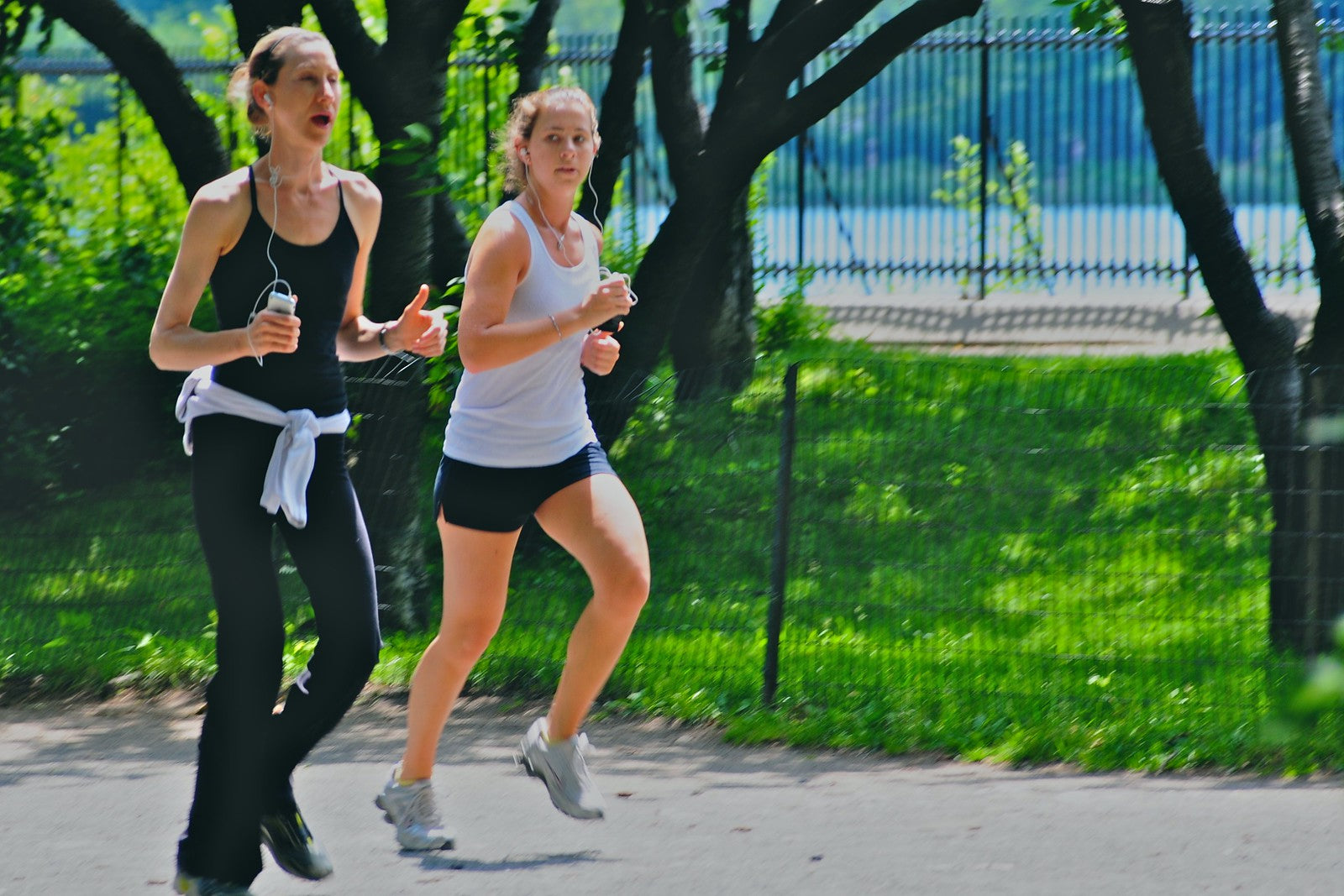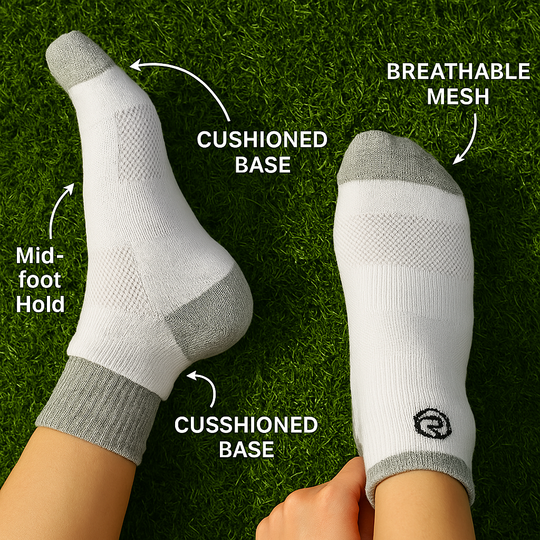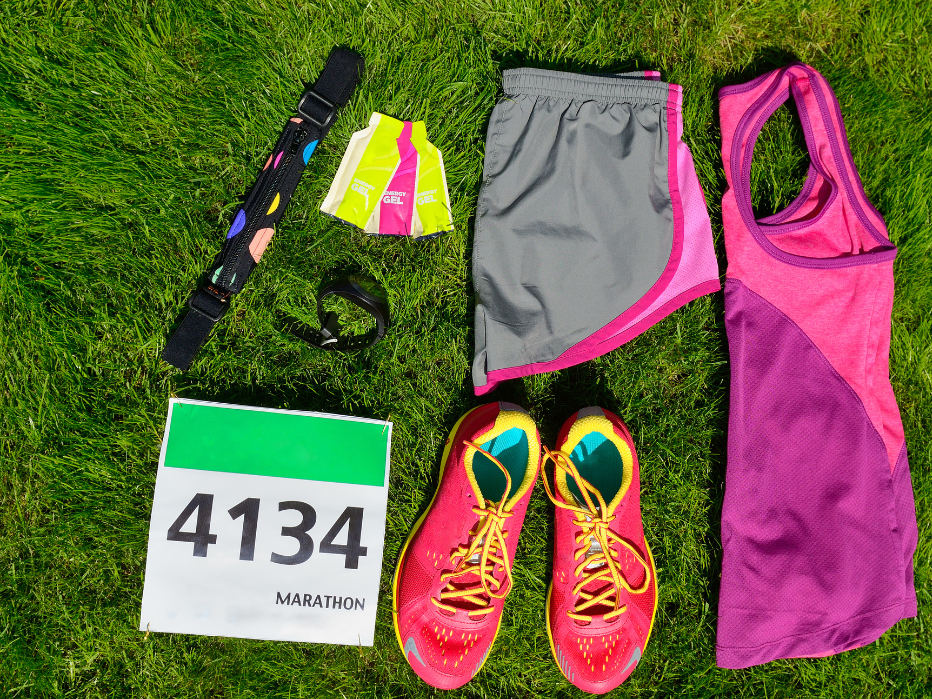Different Types Of Running Races ― And How To Pick The Best One For Yourself?
Date
Duration
6 min read

Running is one of the most popular physical activities of all time. It doesn’t cost you much and comes with many benefits. It becomes fun and challenging when a person decides to indulge in regular running sessions. Now, there are several running race types, but one should choose a race according to their experience, distance, motivation, stamina, or goals. Below is a summary of the types of races you can choose from.
Without further ado, let’s get started.
100/ 200/ 400m race
These races are one of the most popular ones and are also known as sprint races. Packed with innumerable health benefits, one must try a sprint race and witness the change. Though not easy, the results of a sprint race can keep you motivated to go a long way. Sprinting boosts your metabolism and regulates your fat-burning hormone. If you are bored of running on treadmills, then sprint races are the catch for you. Sprinting is one of the most complete muscle training exercises you could ask for.
Ideal for: Sprint race is ideal for beginners who want to shed some extra kilos.
How to prepare: Before going for a sprint race it is imperative to warm up your body. 5 minutes of light cardio is a good way to do that.
Right clothes: Most people don’t feel the need for sports clothes. But they fail to understand that ideal clothing is going to help you and support your body.
5-km race
This falls under the category of short-distance race and is one of the most popular amongst all. A 5-km race is a short distance that helps build your endurance and efficiency. Short distance runs help you notice actual athletic improvements. Focussing on shorter miles gives you more control over your exercise regimen. You can balance your running with other forms of exercise that will help improve your short-distance running. An ideal runner takes 30 to 40 minutes to complete a 5-km race.
Ideal for: Both beginners and intermediates can opt for a 5-km race. Ideal for both novice and irregular joggers.

10-km race
A 10-km race helps you leap forward from the category of a beginner runner to an intermediate runner. It is best suited to those who look forward to pushing their limits and want to prepare for half-marathons and marathons. With the increase in the distance, the time and the force over your body are increased too. The average time for a 10-km race is an hour. Although this depends much on your experience and fitness level, continuous movement for an hour is nothing but heroic. In addition, 10-km races help to strengthen your heart. While it seems difficult to run 10 kms every day, it is ideal to run at least twice a week. Doing so will boost your immune system and keep you free of bugs. Apart from health benefits, the sense of accomplishment that a 10-km run provides is truly unparalleled.
Ideal for: Best suited for well trained advanced runners. Those falling under the category of beginner and intermediate can also try it, but with prior training.
Time taken: The time taken to finish a 10-km run varies from person to person. A trained athlete with good strength and endurance can pull off a 10km run in 43 to 50 minutes.
Diet: Maintaining a healthy diet is a prerequisite to running. A healthy, nutritious and balanced diet is a must-have for those who want to complete the race within a stipulated time.
Half marathon
This 21km race is mainly conducted in large fields or open areas. It is the most popular form of the long-distance race too. A half marathon is your first step in the world of long-distance races. The cardiovascular system is greatly improved by training for the half marathon. Training for a half marathon requires the gradual building of mileage and speed, prolonged running, and commitment to fitness. The increased mileage and speed are particularly helpful for improving cardiovascular health.
Ideal for: Intermediate and advanced learners.
Time taken: Half marathon runners generally aim for finishing the race within two hours. With good nutrition and appropriate practice sessions, this goal is achievable.

Full marathon
Some runners consider it as the ultimate milestone in their running career. Stretched over a distance of 42 km, this race requires extreme dedication, skill, hard work, and 12-20 weeks of training. While the average finishing time of a full marathon is close to 4 and a half hours, experienced runners can finish it in 2 hours too. A full marathon is loaded with a lot of physical and mental benefits. Running full marathons helps you to get in shape and leaves you with toned legs. Training for marathons is quite exhausting. Your body gets tired, and you are likely to go to bed earlier and have a sound sleep. Running is the best way to reduce your stress. The person who starts the marathon is not the same person who finishes it. You get a new outlook towards life too.
Ultra-run
Life is all about pushing limits, and so is ultra-run. If you are not satisfied with your skill level and want your running experience to be more challenging, you can take up an ultra-run. It is stretched over a distance of 50-100kms and can be finished in even a day or up to 10 days. The cardiovascular system is greatly improved by training for the ultra run. Training for an ultra run requires the gradual building of mileage and speed, prolonged running, and commitment to fitness. The increased mileage and speed are particularly helpful for improving cardiovascular health. In addition, intense running can cause your body to kick into afterburn, an event where your body burns even more calories in the hours following your run.
Ideal for: Ultra runs can be tried by all types of runners. The only difference being that advanced runners will take less time compared to beginners.
How to prepare: The shift from sprint race to ultra-run might take a toll on your health, if the transition is not smooth. Strength training lies at the core of this process. Ensure good nutrition and keep yourself hydrated.
Fun-run
These are conducted to spread awareness or to support a theme. People in different costumes, colors gather to participate in these races. These races are more about having fun rather than focusing on the physical aspect. You may find different kinds of obstacles like mud, water, or hurdles, which increases the fun factor of running exponentially.

Although there is no right and wrong in choosing a race. However, we have created different levels according to the goals set by people all over the world.
- Beginner: If you are looking forward to adapting to running for a healthy lifestyle or trying to recover from a serious injury, sprints or a 5km race are the best ones to start with. It is chosen due to its low intensity and progressive manner.
- Casual: In case you have a tightly-packed schedule yet possess the love for running, you can opt for running 2-3 times a week. The ideal races for you would be 5km and 10km races.
- Health-oriented runners: These runners mainly run to maintain their fitness levels daily. If you fall under this category, 5km, 10 km, and half marathons are the best ones for you.
- Passionate runners: If you have an undying love for running and you love to keep pushing limits, then you can go for any race you want. You can vary the difficulty levels by choosing varying terrains or setting your personal best according to the race you run.
Go ahead and choose the one best suited to your goals, but do not skip running. Initially, it might be difficult to trace the changes that running brings to your body, but you are surely not going to regret your decision. It is imperative to have a healthy body in today’s tough times. While it is not possible for everyone to access gyms, running is an exercise that can be a great substitute for those long gym sessions and treadmill affairs.






